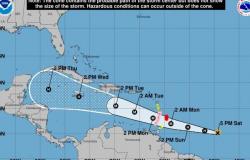(CNN) — A CIA assessment released this week to U.S. officials concluded that Israel’s Prime Minister Benjamin Netanyahu probably believes he can get away with not defining a postwar plan, even as Joe Biden’s administration has launched an entire campaign of pressure to end the conflict in Gaza.
Netanyahu “probably believes he can maintain the support of his security chiefs and avoid defections” from the right wing of his coalition by speaking about the future of Gaza in “vague terms,” says the June 3 report, reviewed by CNN.
The assessment — which has not been previously reported — represents one of the most up-to-date intelligence assessments of Netanyahu’s mindset that has circulated among senior U.S. officials, according to a source familiar with the internal report.
It comes amid a clear shift in how the Biden administration views Israel: less as a trusted partner and more as an unpredictable foreign government that must be analyzed and understood.
The CIA declined to comment when asked about the CNN report.
The assessment highlights how the Israeli leader is defying pressure from members of his own government and the Biden administration to define an “end state” for Gaza and warns that what Netanyahu has said publicly is probably true: that he will only seriously engage on postwar issues after meeting “what he considers key security benchmarks, which can take months.”
According to the assessment, those benchmarks include the completion of “major military operations” – something analysts have said is deliberately vague – as well as the elimination of Hamas military commander Mohammed Deif.
Deif is the commander of the Qassam Brigades and, as a senior commander in Hamas’s military wing, is believed to have been deeply involved in planning the October 7, 2023 attacks in Israel.
Israel has attempted to attack Deif on multiple occasions in the past and, although he has been injured, he is believed to be still alive.
The report is consistent with what CNN and other outlets have reported in the days since President Joe Biden announced a proposed three-front peace deal on Friday.
It comes as senior Biden administration officials, including CIA Director Bill Burns, meet with key mediators between Israel and Hamas at a particularly tense moment in the negotiations.

Israel’s Prime Minister Benjamin Netanyahu addresses the Conference of Presidents of Major American Jewish Organizations, amid the ongoing conflict between Israel and the Palestinian Islamist group Hamas, in Jerusalem on February 18, 2024. (Photo: Ronen Zvulun/Reuters).
Burns has been the lead U.S. negotiator on a possible deal.
The United States has publicly characterized the deal as an Israeli proposal and has said it is waiting for Hamas to approve the terms. But Israel has been lukewarm at best about the proposal. Privately, officials have long been aware of the difficulty of getting both sides to agree.
The relationship between Biden and Netanyahu — a world leader whom he once claimed to “love” — has become increasingly strained as the number of civilian casualties in Gaza rises as a result of Israel’s bombing campaign. Biden and other US officials have been increasingly critical of Netanyahu in public.
Although the administration was initially very reluctant to discuss Israeli policy in public, in recent weeks and months officials have come increasingly closer to a frank assessment of Netanyahu’s motivations.
“There are more than enough reasons to conclude” that Netanyahu is prolonging the war for his own political benefit, Biden said in an interview this week with TIME magazine.
In a stark early moment in March, the U.S. intelligence community said publicly that it assessed Netanyahu’s “viability as leader” to be “in jeopardy,” pointing to public distrust in the prime minister’s ability to govern and predicting “large protests demanding his resignation and new elections.”
Netanyahu faces a domestic reckoning over military and intelligence failures that led to Hamas’ devastating attack on southern Israel on October 7. He also faces deep divisions within his own government. Even amid strong pressure from Biden to end the war, he faces equally strident pressure from right-wing officials in his fragile governing coalition to keep fighting.
The CIA assessment highlights that, within Israel, there is no consensus on the post-war plan for Gaza, indicating the divergent views of individual cabinet ministers on governance, security and post-war reconstruction.
Netanyahu, for example, appears next to a note that indicates that he “prefers a coalition of moderate Arab states to manage the territory with the eventual participation” of other leaders.
Other Israeli leaders appear with opinions on future governance diametrically opposed to those attributed to Netanyahu.
Overall, the assessment illustrates how Israel’s coalition government remains deeply divided on several critical postwar issues, supporting the CIA’s broader conclusion that a lack of unity among Netanyahu’s political rivals could allow him continue to defy any pressure to define a plan for Gaza once the conflict ends.
“My biggest disagreement with Netanyahu is: What happens when Gaza ends?” Biden told TIME. “Where are you coming back? Are Israeli forces coming in again?”





